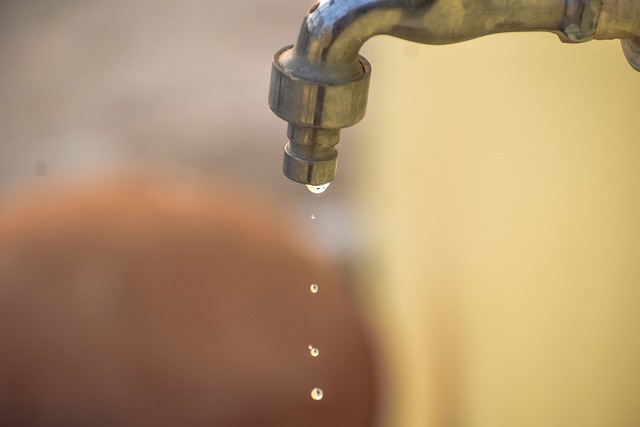Unveil the mysteries of mineral buildup with the ultimate guide for first-time homeowners. Say goodbye to confusion and hello to clarity as we navigate through the ins and outs of this common household nuisance. In this comprehensive guide, we will unravel the complexities surrounding mineral buildup, empowering you to tackle it head-on and maintain a pristine home environment effortlessly.
Table of Contents
ToggleUnderstanding Hard Water
What Causes It
Hard water originates from mineral deposits in underground water sources. The quality of soil surrounding these sources influences the mineral content in water. Measurement of hard water is typically done in grains per gallon, indicating the mineral concentration.
Why It’s a Problem
Hard water is prevalent in many U.S. homes, with over 85% affected by it. Mineral deposits lead to clogs and corrosion in plumbing systems and appliances. Effects of hard water include dry skin, dull hair, dingy clothes, and spotty dishes.
Consequences for Homeowners
Scale buildup from hard water can reduce water pressure and damage pipes over time. Skin irritation, hair dryness, and faded clothing are common issues caused by hard water. Addressing hard water problems is crucial for homeowners to prevent costly repairs.
Identifying Mineral Buildup
Signs in Faucets
Mineral buildup in faucets manifests as white or greenish stains around the spout and handles. Reduced water flow and low water pressure are common issues caused by mineral deposits. To identify hard water signs, look for crusty residue on faucet aerators.
When hard water minerals accumulate in faucets, they can impair the faucet’s performance by clogging the aerator and reducing water flow. The presence of mineral buildup can also lead to leaks and corrosion, affecting the overall functionality of the faucet. Regularly checking for these signs can help homeowners address the issue promptly.
- White or greenish stains
- Reduced water flow
- Crusty residue on faucet aerators
Showerhead Blockage
Mineral buildup often results in blockages within showerheads, leading to uneven spray patterns and reduced water pressure during showers. Hard water can cause calcium deposits to accumulate inside the showerhead, affecting its performance.
When hard water minerals accumulate in showerheads, they can hinder water flow and create blockages that disrupt the showering experience. To address this issue, homeowners can use a vinegar solution to dissolve mineral deposits and restore proper water flow.
- Uneven spray patterns
- Reduced water pressure
- Calcium deposits accumulation
Water Heater Issues
Hard water is known to cause problems in water heaters by forming mineral deposits that reduce heating efficiency. Adjusting the water heater temperature to a moderate setting can help prevent mineral buildup and prolong the appliance’s lifespan.
Proper maintenance, such as flushing the water heater regularly and installing a water softener, can help prevent mineral buildup and extend the life of the appliance. Monitoring the temperature settings and addressing any signs of mineral accumulation promptly are essential steps in ensuring optimal water heater performance.
- Flushing the water heater regularly
- Installing a water softener
- Monitoring temperature settings
Combatting Hard Water Buildup
Cleaning Techniques
Gathering Materials
To effectively clean mineral buildup, essential materials include white vinegar, baking soda, scrubbing brush, and microfiber cloths. Having the right tools ensures efficient removal of hard water stains.
- White vinegar
- Baking soda
- Scrubbing brush
- Microfiber cloths
Soaking and Scrubbing
Soaking fixtures in vinegar solution helps dissolve mineral deposits before scrubbing with baking soda paste. Follow these steps:
- Create a vinegar solution.
- Soak affected areas.
- Scrub with baking soda paste. Using this method ensures thorough cleaning of hard water stains.
Adjusting Heater Temperature
Adjusting the water heater temperature is crucial to prevent mineral buildup. Ideally, set the heater below 120 degrees Fahrenheit to reduce scale formation. Maintaining lower temperatures minimizes mineral accumulation in pipes and appliances.
Using Rinse Aids
Rinse aids play a vital role in preventing mineral buildup on dishes and glassware in hard water regions. Selecting quality rinse aids helps maintain spotless dishes by reducing spotting and streaking. Follow manufacturer guidelines for optimal results.
Water Softener Benefits
Installing a whole-home water softener offers numerous advantages for combating mineral buildup. Water softeners remove calcium and magnesium ions from water, preventing scale formation on surfaces over time. Long-term benefits include extending appliance lifespan and improving water quality.
Preventive Measures
Regular Maintenance Tips
To maintain a water softening system, it’s crucial to regularly check and replenish salt levels. Flush the system periodically to remove accumulated minerals and debris. These simple tasks can significantly extend the lifespan of your water softener.
Regular maintenance is key in preventing mineral buildup in your plumbing fixtures and appliances. By staying proactive, you can avoid costly repairs caused by clogged pipes and reduced water flow. A well-maintained system ensures that your water remains clean and free from mineral deposits.
Consistent maintenance not only prevents mineral buildup but also improves water quality throughout your home. By ensuring your water softening system operates efficiently, you can enjoy softer skin, cleaner dishes, and longer-lasting appliances. Investing time in maintenance pays off with better overall water performance.
Installing Filters
Installing filters for water purification offers numerous benefits for homeowners. Filters help eliminate impurities like sediment, chlorine, and heavy metals from your water supply. This results in cleaner, healthier water for drinking, cooking, and bathing.
Filters play a crucial role in removing impurities and minerals that contribute to hard water buildup. By selecting the right filter based on your water quality needs, you can effectively reduce mineral content in your water. Proper installation ensures that your filters work optimally to provide safe and clean water for daily use.
When selecting and installing filters for homes, consider factors such as filtration capacity and maintenance requirements. Choose filters that are compatible with your existing plumbing system and ensure they are installed correctly to maximize their efficiency. Regularly replace filter cartridges as recommended to maintain peak performance.
Water Softening Solutions
Various solutions are available for softening hard water, each with its unique advantages. Ion exchange systems effectively remove calcium and magnesium ions responsible for hardness. Filtration methods like reverse osmosis also offer efficient removal of minerals from water.
Comparing different methods of water softening helps homeowners choose the most suitable option for their needs. While ion exchange systems are effective at reducing hardness minerals, they require regular salt replenishment. Filtration systems provide an alternative solution without the need for salt regeneration.
The effectiveness of different water softening solutions depends on factors such as water hardness levels and household preferences. Understanding the pros and cons of each method allows homeowners to make informed decisions about improving their water quality.
DIY Solutions for Mineral Removal
Faucet and Showerhead Cleaning
Cleaning faucets and showerheads is essential to prevent mineral buildup. Start by soaking the fixtures in a solution of equal parts water and vinegar. Scrub gently with a toothbrush to remove deposits. Rinse thoroughly after cleaning.
Regular cleaning is crucial to avoid hard water stains on faucets and showerheads. By maintaining cleanliness, you can prevent mineral buildup from affecting water flow and quality. Consistent cleaning also prolongs the lifespan of your fixtures.
Keeping faucets and showerheads clean in hard water areas has numerous benefits. It ensures optimal water pressure, improves water quality, and enhances the overall appearance of your bathroom. Regular maintenance saves you money on repairs in the long run.
Natural Remedies
Natural remedies are effective for removing mineral buildup without harsh chemicals. Use vinegar as a natural cleaner by soaking a cloth in vinegar and wrapping it around the faucet or showerhead. Leave it overnight to dissolve mineral deposits.
Household items like lemon juice and baking soda are excellent alternatives for combating mineral buildup naturally. These ingredients break down hard water deposits effectively without causing damage to your fixtures. Natural remedies are safe for both you and the environment.
Natural solutions offer a cost-effective way to address hard water issues at home. They provide an eco-friendly alternative to chemical cleaners while delivering impressive results in removing mineral buildup. Embracing natural remedies promotes sustainability in household maintenance.
Professional Tools
Utilizing professional tools can simplify the process of cleaning mineral buildup effectively. Professional-grade descaling agents are specifically formulated to tackle tough hard water stains on faucets and showerheads. These products ensure thorough removal of deposits.
Specialized tools like descaling wands help target hard-to-reach areas where mineral buildup accumulates. Investing in professional tools guarantees efficient cleaning results with minimal effort required on your part. These tools save time and energy while maintaining the pristine condition of your fixtures.
Professional-grade cleaning tools offer precision and effectiveness in tackling mineral buildup challenges. From descaling solutions to specialized brushes, these tools provide comprehensive solutions for combating hard water stains. Enhance your cleaning routine with professional tools for optimal results.
Long-Term Strategies
Water Testing
Testing water quality for mineral content is crucial for first-time homeowners to ensure safe and clean water. Homeowners can use test kits or hire professionals for comprehensive water analysis. Understanding the results helps in determining the appropriate treatment methods.
System Upgrades
Upgrading water systems offers various benefits, including improved water quality and extended appliance lifespan. These upgrades are essential for addressing hard water issues caused by mineral buildup. Installing water softeners or filtration systems can effectively mitigate mineral accumulation.
Professional Consultation
Seeking professional advice is vital when dealing with persistent hard water problems. Experts in water treatment can provide tailored solutions based on specific needs. Homeowners should look for certified professionals with experience in conducting water quality assessments.
Summary
Understanding hard water and mineral buildup is crucial for first-time homeowners. By identifying these issues early on, you can effectively combat and prevent the damaging effects they have on your plumbing and appliances. Implementing DIY solutions and long-term strategies will not only save you money but also ensure the longevity of your home systems.
Take charge of your home maintenance by applying the preventive measures discussed in this guide. Regularly checking for mineral buildup and taking proactive steps will help you avoid costly repairs down the line. Stay informed, stay proactive, and enjoy a stress-free homeownership experience!
Frequently Asked Questions
1. How does hard water affect my plumbing system?
Hard water can lead to mineral buildup in pipes, reducing water flow and causing clogs. It may also damage fixtures over time, leading to costly repairs.
2. What are the signs of mineral buildup in a home?
Look out for white or yellowish deposits on faucets, showerheads, and dishes. Reduced water pressure, dry skin after showers, and soap scum are also indicators of mineral buildup.
3. Can I prevent mineral buildup without professional help?
Yes, you can prevent mineral buildup by installing a water softener system or using vinegar solutions for cleaning. Regular maintenance and cleaning can help minimize mineral deposits in your home.
4. Are there any natural DIY solutions for removing mineral buildup?
Using a mixture of vinegar and water or lemon juice can effectively remove mineral deposits. These natural remedies are eco-friendly and safe alternatives to chemical cleaners.
5. Why is it important to address mineral buildup in the long term?
Ignoring mineral buildup can lead to severe damage to your plumbing system and appliances. By implementing long-term strategies like regular maintenance and using water softeners, you can avoid costly repairs in the future.
Experience Excellence in Mineral Buildup Solutions with Garcia Home Restoration!
We understand the frustrations homeowners face when dealing with mineral buildup in their plumbing systems. Our dedicated team of licensed experts leads the way in providing exceptional mineral buildup solutions that ensure reliability and efficiency.
Beyond just plumbing issues, Garcia Home Restoration offers comprehensive home maintenance solutions. Our reputation in Contra Costa County is built on unwavering quality, unmatched expertise, and the trust of numerous satisfied clients. Don’t compromise when it comes to your home’s functionality and cleanliness. Contact us today for outstanding mineral buildup service and embrace a worry-free plumbing future!




